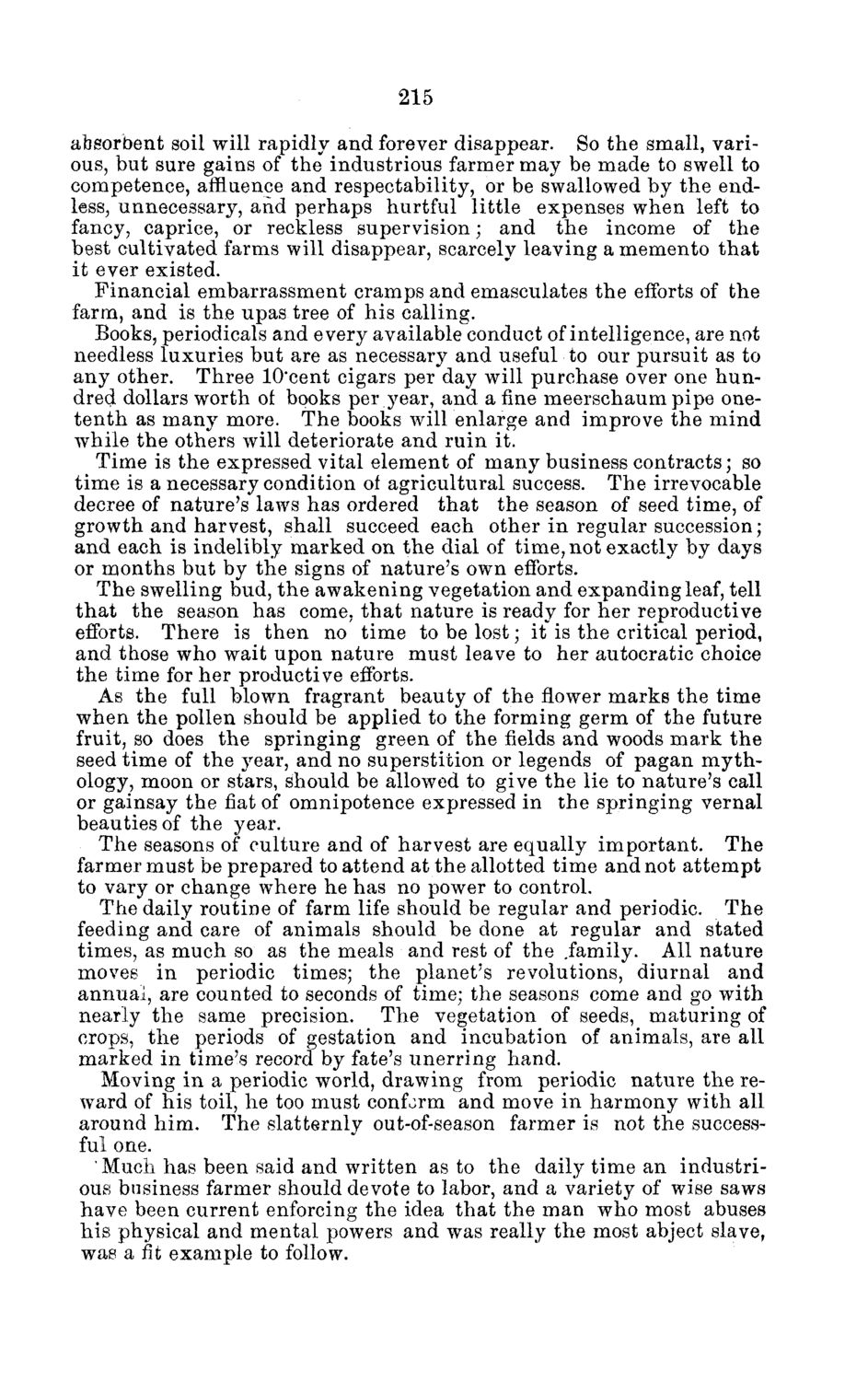| |
| |
Caption: Board of Trustees Minutes - 1876
This is a reduced-resolution page image for fast online browsing.

EXTRACTED TEXT FROM PAGE:
215 absorbent soil will rapidly and forever disappear. So the small, various, but sure gains of the industrious farmer may be made to swell to competence, affluence and respectability, or be swallowed by the endless, unnecessary, and perhaps hurtful little expenses when left to fancy, caprice, or reckless supervision; and the income of the best cultivated farms will disappear, scarcely leaving a memento that it ever existed. Financial embarrassment cramps and emasculates the efforts of the farm, and is the upas tree of his calling. Books, periodicals and every available conduct of intelligence, are not needless luxuries but are as necessary and useful to our pursuit as to any other. Three 10'cent cigars per day will purchase over one hundred dollars worth of books per year, and a fine meerschaum pipe onetenth as many more. The books will enlarge and improve the mind while the others will deteriorate and ruin it. Time is the expressed vital element of many business contracts; so time is a necessary condition of agricultural success. The irrevocable decree of nature's laws has ordered that the season of seed time, of growth and harvest, shall succeed each other in regular succession; and each is indelibly marked on the dial of time, not exactly by days or months but by the signs of nature's own efforts. The swelling bud, the awakening vegetation and expanding leaf, tell that the season has come, that nature is ready for her reproductive efforts. There is then no time to be lost; it is the critical period, and those who wait upon nature must leave to her autocratic choice the time for her productive efforts. As the full blown fragrant beauty of the flower marks the time when the pollen should be applied to the forming germ of the future fruit, so does the springing green of the fields and woods mark the seed time of the year, and no superstition or legends of pagan mythology, moon or stars, should be allowed to give the lie to nature's call or gainsay the fiat of omnipotence expressed in the springing vernal beauties of the year. The seasons of culture and of harvest are equally important. The farmer must be prepared to attend at the allotted time and not attempt to vary or change where he has no power to control. The daily routine of farm life should be regular and periodic. The feeding and care of animals should be done at regular and stated times, as much so as the meals and rest of the .family. All nature moves in periodic times; the planet's revolutions, diurnal and annual, are counted to seconds of time; the seasons come and go with nearly the same precision. The vegetation of seeds, maturing of crops, the periods of gestation and incubation of animals, are all marked in time's record by fate's unerring hand. Moving in a periodic world, drawing from periodic nature the reward of his toil, he too must conform and move in harmony with all around him. The slatternly out-of-season farmer is not the successful one. ' Much has been said and written as to the daily time an industrious business farmer should devote to labor, and a variety of wise saws have been current enforcing the idea that the man who most abuses his physical and mental powers and was really the most abject slave, was a fit example to follow.
| |